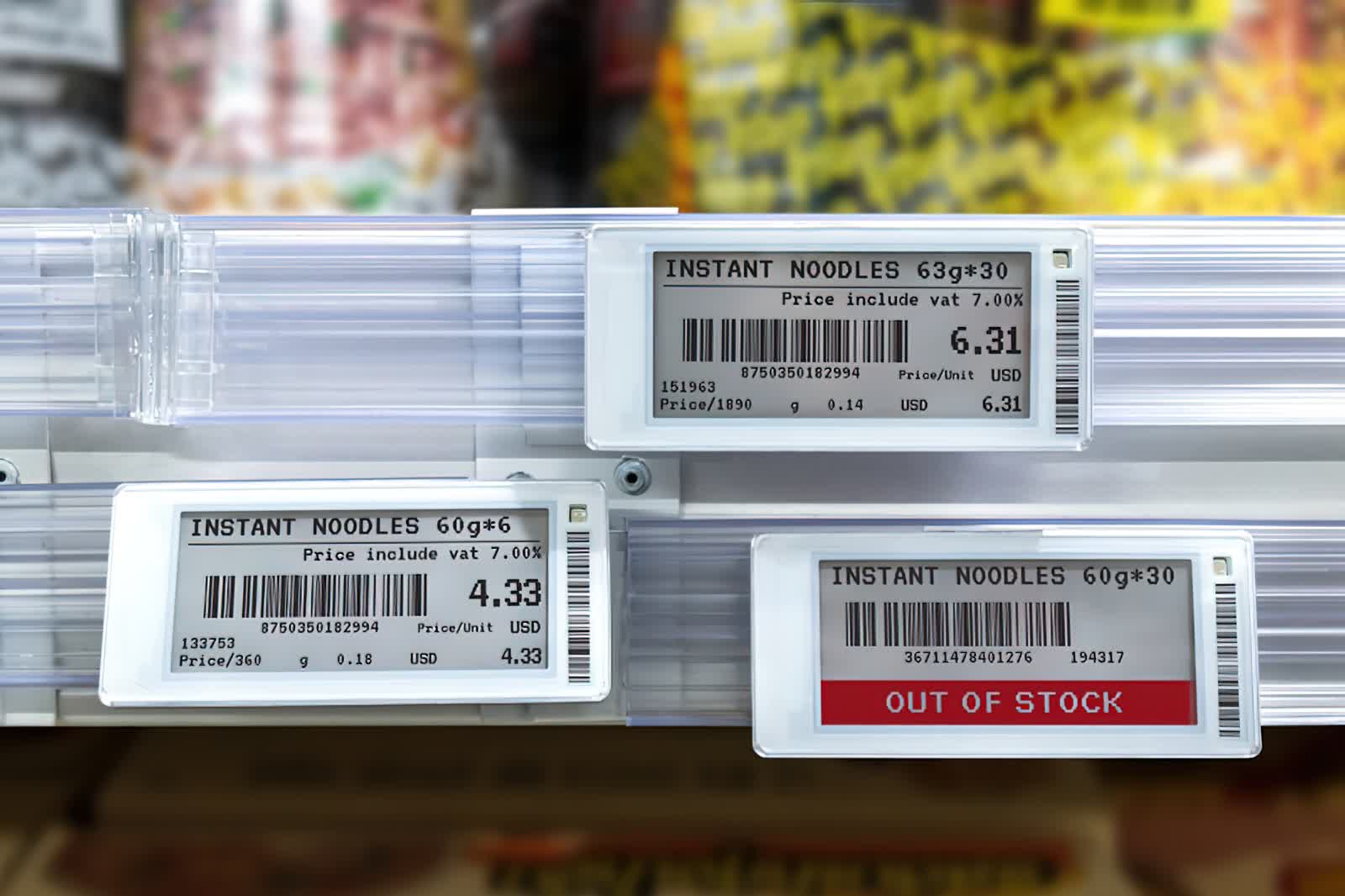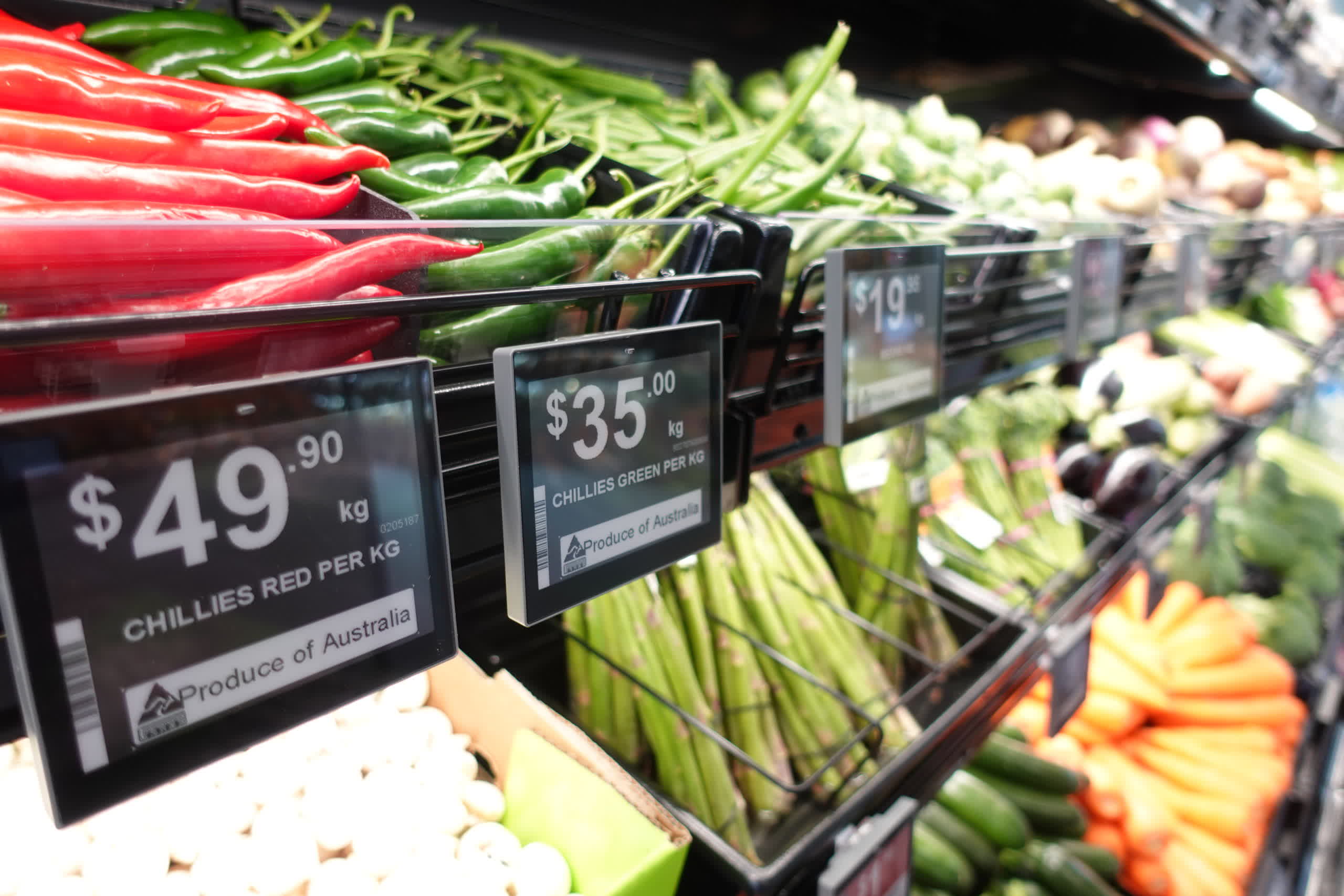Recap: In recent years, digital shelf labels have stirred debate across the United States. Although some shoppers and lawmakers worry the technology could enable unpredictable, demand-driven price hikes, a new academic study suggests those fears may be overblown.
Research recently published by teams from the University of Texas at Austin, the University of California, San Diego, and Northwestern University analyzed five years of pricing data from a major grocery chain that adopted digital shelf labels in 2022. The study found no evidence that the store engaged in surge pricing after installing the digital labels. Temporary price hikes remained rare, affecting just 0.005 percent of products per day before the switch and increasing by only 0.0006 percentage points afterward. Researchers also observed a slight increase in product discounts following the rollout.
Despite the data, skepticism persists. Posts warning that supermarkets could exploit digital labels to instantly raise prices – like charging more for ice cream during a heatwave or umbrellas when it rains – continue to spread across social media. In response, lawmakers in several states have proposed legislation to restrict or ban the technology, citing concerns about potential abuse and its impact on local jobs. In Arizona, a bill to prohibit digital shelf labels has yet to receive a hearing, but its sponsor, Democratic state Rep. Cesar Aguilar, continues to push for greater oversight.
Some critics also raise concerns about personal privacy. Last fall, Senators Elizabeth Warren and Bob Casey sent a letter to Kroger questioning whether the grocery giant might pair electronic labels with cameras and data analytics to enable dynamic pricing. Kroger denied any link between the labels and facial recognition, insisting its pricing strategy focuses on keeping prices low to attract more customers.
Digital shelf labels are not a new invention. European supermarkets and some US retailers, such as Kohl's, have deployed them for over a decade. However, adoption in American grocery stores has lagged behind Europe, where roughly 80 percent of supermarkets use them compared to just five to ten percent in the US.
VP of Industry Strategy for Relex Solutions Amanda Oren told the Associated Press that the high upfront cost – ranging from five to twenty dollars per label – has slowed adoption. Equipping a single store with tens of thousands of products can require a significant investment.
Nevertheless, momentum is building. Walmart, the country's largest grocer, plans to install digital shelf labels in 2,300 stores by 2026. Kroger and Whole Foods are also expanding their use of the technology. Retailers tout the efficiency gains: Walmart estimates that switching from paper to digital tags reduces the time needed to update prices on 120,000 items from two days to just a few minutes. Some digital labels offer added features, such as QR codes for recipes or nutrition facts, and even help Instacart shoppers locate items more quickly.
In Europe, digital labels have enabled innovations aimed at reducing food waste. For example, Albert Heijn supermarkets in the Netherlands and Belgium use artificial intelligence to automatically lower prices on items nearing expiration, a practice that has reportedly cut food waste by more than 250 tons annually.
While the debate continues, the study's authors emphasize that grocery retailers have little incentive to alienate customers with unpredictable price changes.
"Selling groceries is not like selling a couch. It's not a one-time transaction – you want customers coming back every week," concluded study co-author Ioannis Stamatopoulos.
New study finds little evidence of surge pricing when retailers use digital shelf labels

